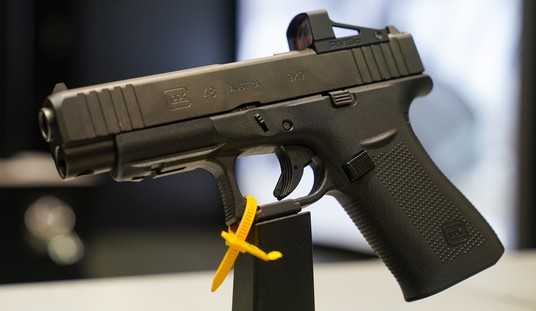
Chicago Police Department Superintendent Eddie Johnson is still waiting for the Illinois crime bill he was promised months ago, and he is not happy about it.
“They promised me that we would have something done in January. We’re at the end of February,” Johnson said, expressing his frustration with the lack of legislation to stiffen penalties for repeat gun offenders.
Chicago’s Mayor Rahm Emanuel has made similar comments that tougher sentences for gun crimes should be an essential component of the city’s approach to public safety.
State Representatives Elgie Sims Jr. and Mike Zalewski, both Chicago Democrats, have reportedly been trying to put together legislation since last fall. Neither Sims nor Zalewski responded to a request for an interview.
On the surface, it would be difficult to disagree when you look at the 2016 Chicago statistics: 4,300 shootings including 750 homicides in which 97 percent of those were committed with a handgun.
Exactly what percentage of the shooters had prior firearms convictions wasn’t readily available however in an article published in dnainfo.com last August, of the 52 people shot in a single weekend, 40 had prior contact with police and collectively they had 672 arrests on their records. In the killing fields of Chicago the statistical probability of 672 arrests without a significant percentage of them involving firearms isn’t very likely.
While the thought of longer sentences for gun-related offenses is near-and-dear to conservatives, the issue isn’t quite as simple as it might seem.
State Representative Margo McDermed, a south suburban Republican, Illinois Concealed Carry holder and long-time NRA and Illinois State Rifle Association member, told Bearing Arms that she has also been waiting to see the bill.
“Both sides of the aisle have a common interest in addressing any solution to the current epidemic of gun violence in Chicago,” McDermed said, stressing that a longer sentence for gun-related crimes is not a simple solution. “The trend today is to right-size penalties and sentences based on data about whether a harsher penalty actually reduces crime.”
Governor Bruce Rauner commissioned a two-year study by the Illinois State Commission on Criminal Justice and Sentencing Reform that was recently published. While the study doesn’t address gun crimes per se, it looks at how to reduce recidivism including community-based services to help ex-offenders minimize the potential for them to return to crime.
“Governor Rauner’s goal is to reduce the prison population where it makes sense,” McDermed said. “It looks at who’s in prison that shouldn’t be because there are better options for that individual such as a rehab program or incarceration in a county jail to help drive down costs.”
McDermed also noted that it is very difficult for minority State Representatives to vote for bills containing harsher penalties because their constituencies see them as systemic racism – promoting mass incarceration of black young men.
While there is an on-going debate as to the effectiveness of extended incarceration on reducing gun crime, for John Q. Public there is little recognition of another significant cause-and-effect relationship: Incarceration costs money, big money.
According to a 2016 study conducted by the Vera Institute of Justice, Illinois ranks thirteen in a list of states with the highest annual cost to support an inmate. It costs almost $40,000 a year as verses the national average of about $30,000.
Edward Ronkowski, a retired 29 year prosecutor, said currently in Illinois the mere possession of a firearm for most of the applicable felonies adds 15 years in the penitentiary to the sentence.
“If the person committing the applicable felonies discharges a firearm, it adds 20 years to the sentence. If it results in great bodily harm, permanent disability, permanent disfigurement, or death to another person, it adds at least 25 years to natural life to the sentence,” he said.
The question becomes what is the incremental effect on reducing gun violence by increasing those penalties and at what cost to the taxpayer.
Whatever the final form of the proposed legislation may be, it would almost certainly undergo an evaluation by the bipartisan Sentencing Policy Advisory Council and the result is not to be ignored. The Council looks at the likely economic effect and John Q. Public is not going to be happy with the report’s conclusion.
Tax burden is a particularly touchy subject in Illinois where an ever-increasing number of new taxes are driving John Q. out of the state. The result is fewer taxpayers who tend to be less affluent making the increased tax burden more ominous. It isn’t difficult to predict that Illinois tax payers will not take kindly to a greater tax burden to yet again bail out the City of Chicago where violent crime is rampant and the money to deal with it non-existent due to the city’s poor fiscal management.








Join the conversation as a VIP Member